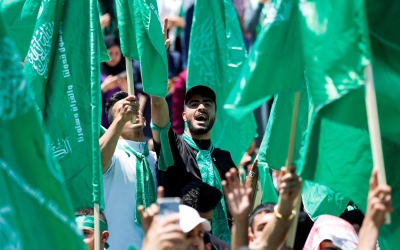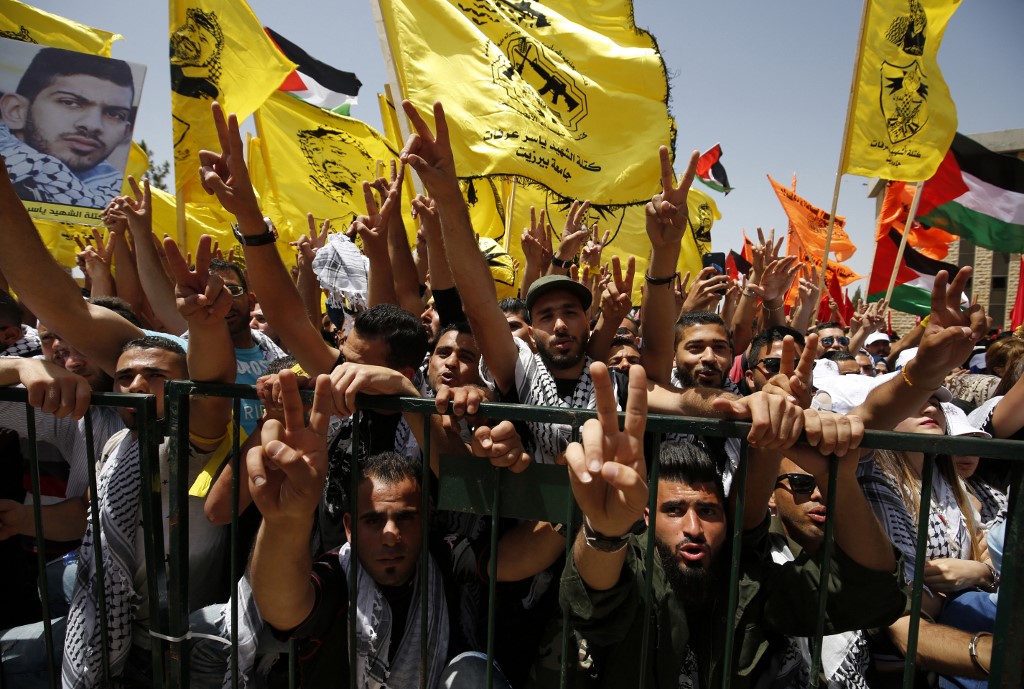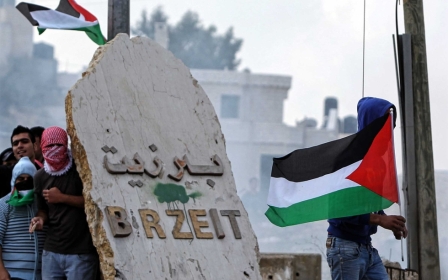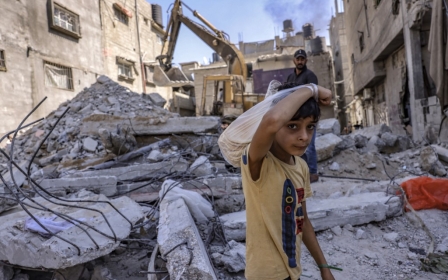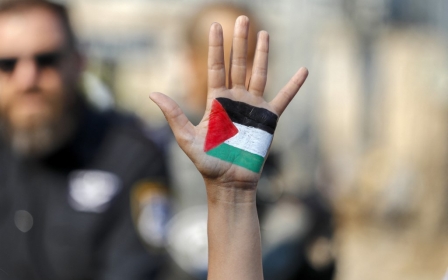Palestine: Do Birzeit University election results mark a turning point?

The outcome of the recent student council elections at Birzeit University, historically a barometer for wider trends among the Palestinian public, reflect today’s unique political context. The Hamas-affiliated bloc won a decisive victory over the Fatah-aligned bloc, compared with a much tighter race when the last Birzeit elections were held in 2019.
The elections followed a year of upheaval across Palestine, after Israeli violations in Jerusalem and Sheikh Jarrah last May sparked resistance across the country, including in the 1948 territories and Gaza.
The Birzeit election outcome cannot definitively be seen as a victory for the Palestinian resistance more generally
At the same time, the so-called peace process has led nowhere, as exemplified by the Palestinian Authority’s resort to coexistence and accommodation, including security coordination, with Israel. For many Palestinians, this has made the option of resistance more enticing.
The PA is in a leadership crisis, with a spiralling budget deficit made worse by the Covid-19 pandemic, Israel’s withholding of tax revenues, and a decline in international funding.
There is also a power struggle unfolding over the question of presidential succession, particularly after an illegitimate session of the Palestine Liberation Organization’s central committee was held earlier this year, in which President Mahmoud Abbas ensured its senior ranks were stacked with his allies.
The Birzeit elections also came as the Israeli army has been escalating its aggression, particularly in cities such as Jerusalem and Jenin. The violence peaked on 11 May with the assassination of Al Jazeera journalist Shireen Abu Akleh, a tragedy that brought the Palestinian cause into the international spotlight and could mark a moment of historic transformation if Palestinians rise to the occasion.
Pivotal error
The victory at Birzeit of the Islamic Wafa bloc (affiliated with Hamas) over the Shabiba bloc (affiliated with Fatah) cannot be seen outside of this context, even though members of the Shabiba bloc do not personally bear responsibility for the misdeeds and corruption of the PA.
One of Fatah’s pivotal mistakes since the founding of the PA, and one that has been exacerbated under the Abbas presidency, was the party’s assimilation into the PA and its security forces. This has transformed it into a party of employees and caused it to bear many of the PA’s burdens, especially after the conclusion of the “golden age” of the Oslo Accords and the beginning of the “dark age” after the assassination of Yasser Arafat.
Since then, the PA has become increasingly beholden to the Israeli occupation, without any reciprocation or any promise of a political horizon. The killing last year of activist Nizar Banat by PA security forces was a case in point, particularly after the PA’s ensuing crackdown on protesters calling for justice.
In this sense, the Shabiba bloc at Birzeit was turned into a new front in the struggle between the PA and various centres of power in Fatah, while also taking a hit from the anger of Jerusalemite students who are fed up with the PA’s weak response to Israeli aggression.
Internally, Shabiba has also suffered from a lack of a stable leadership elected by the students; rather, PA loyalists are appointed to top positions, while those who may be more qualified, or who hold a different point of view that could rally Fatah supporters, are marginalised.
Past votes
Another reason for the Islamic Wafa bloc’s victory is its internal cohesion and actively committed membership, alongside a leadership that is open to addressing students’ concerns.
Many of its members have also been arrested by Israeli forces, including seven on the eve of the election. Such moves betray Israel’s ignorance and inability to learn from previous experiences, which have shown that arrests and assassinations only increase the popularity of the targeted faction.
Since the PA’s founding, Birzeit University student elections have been held 23 times, with 12 resulting in Islamic Wafa victories, 10 in Shabiba victories, and one in a tie. This shows that Islamic Wafa’s weight is relatively stable. Notably, Shabiba won every election after the Fatah-Hamas split, from 2008 until 2015 - but that year marked a turning point for Islamic Wafa, which has since won every election, in 2015, 2016, 2017 and 2018, with the exception of a tie in 2019.
This year, the Islamic Wafa bloc won a landslide victory of 28 seats, the highest proportion in its history at Birzeit, while the Shabiba bloc garnered 18 seats, one of its worst showings ever.
This leads to an important question: do these unprecedented results mark a historic turning point, or is this a fleeting moment that can easily be reversed? At this point, it’s too early to tell, considering that results of past elections were also taken to be harbingers of a sea change - only to see momentum stalled by the 2019 tie.
The Birzeit election outcome cannot definitively be seen as a victory for the Palestinian resistance more generally, since that would also mean that previous electoral defeats for the Hamas-aligned bloc were defeats for the resistance. Such a view does not hold up.
Restoring influence
It can be argued that the rockets fired by the military wing of Hamas in Gaza have had an opposite effect on public sentiment as compared with the much-maligned PA’s security coordination with Israel. Still, the resistance and its gains have unfolded within the confines of Gaza, with no larger political investment in Hamas and a massive human toll.
Among Birzeit’s Shabiba bloc and the Fatah movement more generally, there is a sense of resentment, considering that they share in resistance efforts and have seen many members killed, wounded or imprisoned. But Fatah’s leadership exists in a separate universe.
One way to restore Shabiba's influence on campus would be to distance the bloc from the PA
One way to restore Shabiba’s influence on campus would be to distance the bloc from the PA, with members instead standing side by side with those who fight for Palestinian rights and freedoms, and against corruption and security coordination. We might be reminded here of how the General Union of Palestinian Students, whose majority was always dominated by Fatah and was once led by Arafat, opposed the leadership many times.
Ultimately, the main reason for Shabiba’s loss in the latest election was a groundswell of protest votes against PA policies. Internal problems with Shabiba are secondary. If the status quo remains vis-a-vis the PA, it is almost certain that we will indeed witness a sea change - but one that could be halted if a course correction takes place among the Palestinian leadership.
The views expressed in this article belong to the author and do not necessarily reflect the editorial policy of Middle East Eye.
Middle East Eye propose une couverture et une analyse indépendantes et incomparables du Moyen-Orient, de l’Afrique du Nord et d’autres régions du monde. Pour en savoir plus sur la reprise de ce contenu et les frais qui s’appliquent, veuillez remplir ce formulaire [en anglais]. Pour en savoir plus sur MEE, cliquez ici [en anglais].



